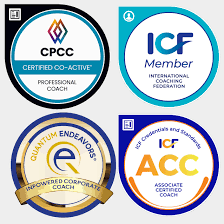The Importance of Coach Training
Coach training is a vital step in becoming a successful and effective coach. Whether you are interested in life coaching, career coaching, executive coaching, or any other type of coaching, proper training is essential to develop the skills and knowledge needed to support your clients effectively.
One of the key benefits of coach training is gaining a deep understanding of coaching principles and techniques. Through training programs, aspiring coaches learn how to establish rapport with clients, ask powerful questions, actively listen, provide constructive feedback, set meaningful goals, and create action plans for success.
Furthermore, coach training helps individuals enhance their communication skills and emotional intelligence. Coaches learn how to empathize with clients, build trust and rapport, manage difficult conversations, and create a supportive environment for growth and development.
Another important aspect of coach training is the opportunity for self-discovery and personal growth. Aspiring coaches often undergo self-assessment exercises that help them gain insights into their own values, beliefs, strengths, and areas for improvement. This self-awareness not only enhances their coaching skills but also contributes to their overall personal development.
Additionally, coach training provides a structured framework for practicing coaching techniques in a safe environment. Coaches-in-training have the opportunity to work with peers and receive feedback on their coaching sessions, allowing them to refine their skills and build confidence in their abilities.
In conclusion, coach training is an invaluable investment for those looking to pursue a career in coaching. By acquiring the necessary knowledge, skills, and experience through formal training programs, individuals can embark on a fulfilling journey as professional coaches who make a positive impact on the lives of others.
5 Essential Tips for Effective Coach Training: Enhancing Skills and Building Strong Client Relationships
- 1. Develop active listening skills to better understand your clients’ needs and concerns.
- 2. Practice empathy and compassion to build strong relationships with your clients.
- 3. Learn effective communication techniques to convey ideas clearly and supportively.
- 4. Continuously engage in self-reflection and seek feedback to improve your coaching abilities.
- 5. Stay updated on the latest coaching trends and methodologies to enhance your professional development.
1. Develop active listening skills to better understand your clients’ needs and concerns.
Developing active listening skills is a crucial aspect of coach training as it enables coaches to truly understand their clients’ needs and concerns. By actively listening to what clients are saying, coaches can demonstrate empathy, build trust, and create a supportive environment for open communication. This skill allows coaches to not only hear the words spoken but also understand the emotions and underlying meanings behind them, leading to more effective coaching sessions and better outcomes for clients.
2. Practice empathy and compassion to build strong relationships with your clients.
To build strong relationships with your clients as a coach, it is crucial to practice empathy and compassion. By understanding and empathizing with your clients’ thoughts, feelings, and experiences, you can create a supportive and trusting environment for their growth and development. Showing compassion towards your clients not only helps them feel understood and valued but also fosters a deeper connection that enhances the coaching process. Embracing empathy and compassion in your coaching approach can lead to more meaningful interactions, effective communication, and ultimately, positive outcomes for your clients.
3. Learn effective communication techniques to convey ideas clearly and supportively.
Learning effective communication techniques is a crucial aspect of coach training, as it enables coaches to convey ideas clearly and supportively to their clients. By mastering techniques such as active listening, asking powerful questions, and providing constructive feedback, coaches can establish strong rapport with their clients and create a safe space for open dialogue and exploration. Effective communication not only helps coaches better understand their clients’ needs and goals but also empowers clients to articulate their thoughts, feelings, and aspirations with clarity and confidence.
4. Continuously engage in self-reflection and seek feedback to improve your coaching abilities.
Continuously engaging in self-reflection and actively seeking feedback are essential practices for enhancing your coaching abilities. By taking the time to reflect on your coaching sessions, interactions with clients, and personal growth, you can identify areas for improvement and refine your coaching approach. Seeking feedback from clients, peers, or mentors provides valuable insights that can help you understand your strengths and areas that need development. Embracing self-reflection and feedback not only fosters continuous learning but also demonstrates a commitment to professional growth and excellence in coaching.
5. Stay updated on the latest coaching trends and methodologies to enhance your professional development.
To excel in coach training, it is essential to stay informed about the latest coaching trends and methodologies. By keeping up-to-date with industry advancements, coaches can enhance their professional development and offer more effective guidance to their clients. Continuously learning about new techniques and approaches not only expands a coach’s skill set but also demonstrates a commitment to providing high-quality coaching services that are relevant and impactful in today’s ever-evolving landscape.


